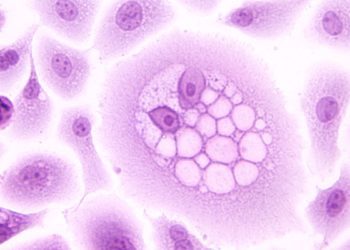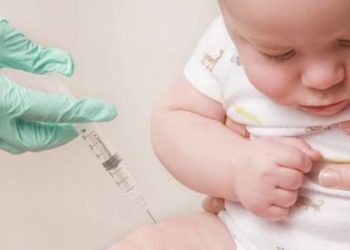HPV catch-up vaccine completion low among pregnant and black women
1. More than 40% of women who began the 3-dose vaccine series did not complete it.
2. Women are black, have public insurance, or become pregnant were less likely to complete the HPV vaccine series.
Evidence Rating Level: 2 (Good)
Study Rundown: Human papillomavirus (HPV) is a sexually transmitted infection that causes anogenital cancers and genital warts. Most of this morbidity is caused by four HPV genotypes, with genotypes 16 and 18 causing cervical cancer and 6 and 11 causing genital warts. Currently, two HPV vaccine formulations—quadrivalent (6, 11, 16 and 18) and bivalent (16, 18)—are used in the prevention of cervical cancer, cervical intraepithelial neoplasia 2 or worse, adenocarcinoma in situ. Existing guidelines recommend targeting administration of the 3-dose series to girls and boys ages 11 to 12, though the vaccine is approved for ages 9 through 26. Ideally, the series is completed prior to the onset of sexual activity, but it is still recommended for sexually active individuals because it can confer protection against strains to which the individual has not been exposed. This study found that “catch-up vaccination,” or vaccination between ages 13 to 26, was less likely to be completed by women who became pregnant during the study period or who are black. This finding suggests that providers need to pay particular attention to HPV vaccination completion in these groups.
Limitations of this study include retrospective design, collection of data through pure chart review, and limited follow-up period. Study participants may have completed the HPV vaccination series at other medical providers or completed the series outside of the study period, resulting in underestimation of completion rates. Future prospective cohort studies are needed to confirm the present work’s findings, though providers should regularly note their patients’ HPV vaccination status to enhance vaccination rates.
Click to read the study in Obstetrics & Gynecology
In-Depth [retrospective cohort study]: This study evaluated HPV vaccine completion rates in 310 young women ages 13 to 26 receiving the first dose. Outcomes of interest included completion of the 3-dose series within 1 year and pregnancy.
Among all study subjects receiving the first dose, 77.1% received a second dose, and 56.1% completed the whole series. 10% of the study population became pregnant within 1 year of receiving the first dose. Women who became pregnant were 62% less likely to complete the series (CI 0.20-0.73). Black women and women with public insurance were 34% less likely to receive all 3 doses (CI 0.53-0.83, 0.52-0.84 respectively).
More from this author: Low screening rates for smokeless tobacco use in pregnant women, Expectant management may be appropriate in ectopic pregnancy, Decreased HIV co-receptor CCR5 expression after IUD insertion, Exercise associated with decreased Cesarean risk, Fetal reduction of triplets increases duration of gestation
Image: PD
©2012-2014 2minutemedicine.com. All rights reserved. No works may be reproduced without expressed written consent from 2minutemedicine.com. Disclaimer: We present factual information directly from peer reviewed medical journals. No post should be construed as medical advice and is not intended as such by the authors, editors, staff or by 2minutemedicine.com. PLEASE SEE A HEALTHCARE PROVIDER IN YOUR AREA IF YOU SEEK MEDICAL ADVICE OF ANY SORT.









